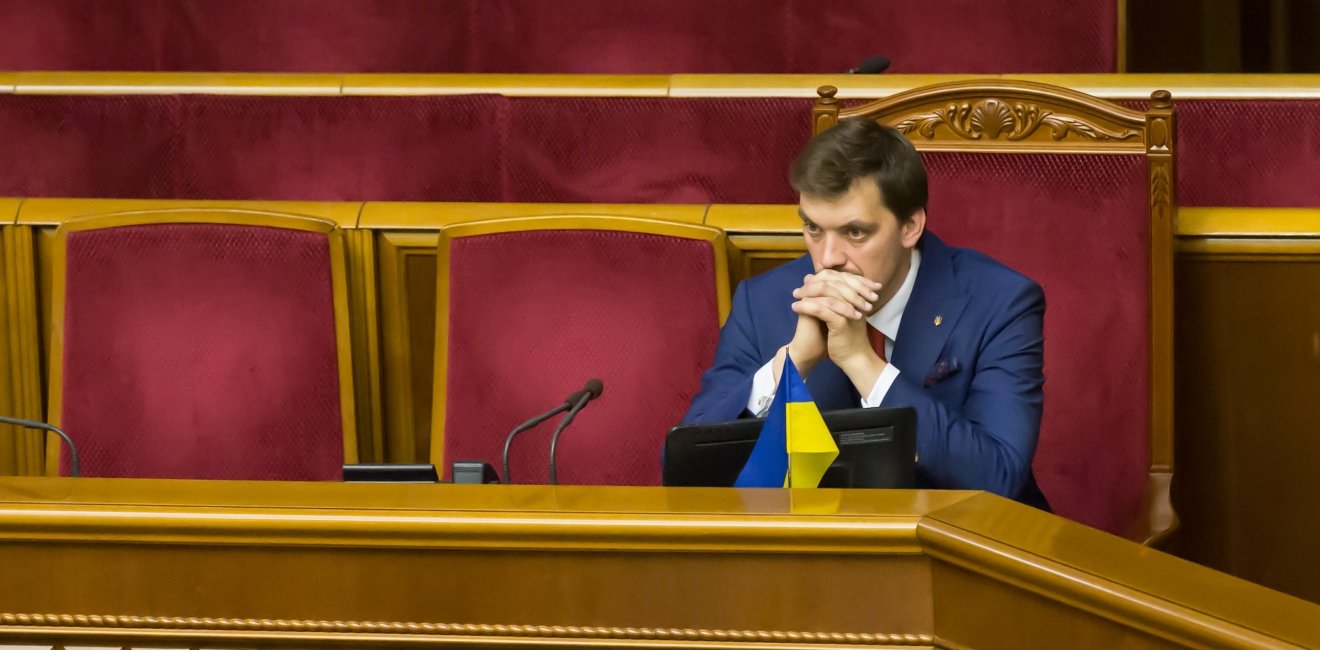Ukraine’s Democratic Leakocracy
Ukrainian politics have been overtaken by information wars. These wars undermine two things vital to liberal democracy: citizens’ control of government and the transparency of authorities’ actions.

A blog of the Kennan Institute
Ukrainian politics have been overtaken by information wars. These wars undermine two things vital to liberal democracy: citizens’ control of government and the transparency of authorities’ actions.

BY ANDRIAN PROKIP & MYKHAILO MINAKOV
Ukrainian politics have been overtaken by information wars. These wars undermine two things vital to liberal democracy: citizens’ control of government and the transparency of authorities’ actions.
Both traditional and social media in Ukraine contribute to propagating leaks—insider information, secret records, political pranks—which in turn inform Ukrainian citizens of the habits of mind, moral values, and just plain oddities of the country’s political leaders and officials. However, in Ukraine as in many other countries, the leakocracy (or demoleakocracy) does not serve democracy well: instead of encouraging government accountability, it feeds resentment politics, destroys trust, and wreaks havoc on the public sphere as a space for meaningful discourse among citizens. And the information fed to the public through leaks may be intentionally falsified.
The most recent case is connected to an attack on Ukraine’s prime minister, Oleksiy Honcharuk.
Since January 15, secret recordings of a meeting convened by Honcharuk have been leaked to the media by an unknown source. On these recordings, the prime minister, several cabinet ministers, representatives of the National Bank of Ukraine, and other top officials are heard discussing how to explain the country’s economic situation to President Volodymyr Zelenskyy. Among the many uncomfortable matters surfaced in the recordings is that the head of the cabinet, who is responsible for economic policies, is in fact not an expert on economic development and has avoided informing President Zelenskyy about some troubling financial issues.
We assume that the aim of releasing these recordings was to discredit the prime minister, undermine the unity of Zelenskyy’s team, and try to use the ensuing scandal to topple the cabinet. Such a scandal did appear briefly to be taking shape, its further development nipped in the bud by President Zelenskyy’s public show of support for Honcharuk and the cabinet. Simultaneously, President Zelenskyy demanded that law enforcement agencies find whoever made and leaked the illegal recordings.
In early February the Security Service of Ukraine searched some media outlets but did not uncover the source; instead, the searches added to journalists’ concerns over shrinking media freedom in Ukraine. Zelenskyy’s approval rating dropped slightly in connection with the scandal. The greatest impact, however, showed up in loss of trust in elections as a means for citizens to express their interests and emphasize policy priorities important to them. In January 2020, politicians and citizens across the political spectrum were voicing the same concern in on-air talk shows: the elected leaders were not delivering what they had promised as candidates and what the voters thought they were getting. The major factor giving rise to this concern is the leaks, which feed suspicions and disbelief.
Thus 2019 appears in retrospect to have been a turning point in Ukrainian politics. Both the style and content of public political communication have changed drastically from what they were in the post-Maidan years. The very nature of what is being discussed, and how, has changed.
Wire-tape recordings and leaks are not new in Ukrainian politics. Since Kuchmagate of 2000, the secrets leaked from the offices of Ukrainian leaders have played into the political process in important ways. Petr Poroshenko’s presidency, for example, was not immune to such influences. Beginning in 2019, however, what was previously a marginal factor in shaping political processes has moved to center-stage.
The leakocracy’s distinctive feature is the promotion to positions of authority of fledgling politicians who are unknown to citizen-voters and inexperienced in negotiating established democratic institutions. The people currently in power seem to be hewing narrowly to the principle of withholding information: the less one knows about an emerging decision-maker, the less ground one has to doubt that person’s actions. And so not trust but resentment and mistrust are leading to certain choices made by citizens.
The effect of the leakocracy is strongest when the mass media proliferate into the political and private spheres to such an extent that they force a spectacle culture on media consumers. Just as political philosophers and certain visionary sociologists feared, mediated images now control human attention, which changes the very logic of political and economic competition, as well as government behavior. Together, spectacle and resentment are creating a new political reality in Ukraine.
This reality works in the following way. The winner of the 2019 presidential elections was a candidate who communicated to voters through a satirical TV show. The new ruling party, Servant of the People, is named after Zelenskyy’s popular sitcom and is expected to act in accordance with the TV show’s plot and the president’s wishes. People with no political experience whatsoever before 2019 now make decisions for a population of approximately 40 million and the largest European country by territory.
To compete with authorities of the Zelenskyyan type, various opposition groups use leaks as the only tool that works against headliner politicians. In particular, they use new media to compete with new power—such as by leaking audio files of Honcharuk’s meeting, which revealed some astonishing deficits in the administration. President Zelenskyy’s support remains high among voters. But trust in public policy and political solidarity have both been dealt blows as the new media deliver a mixture of truth and falsity, with very troubling results.
Ukraine has reached a dangerous crossroad in its political development. In 2019, voters used a classic democratic instrument, elections, to deliver a definitive verdict on the post-Maidan elites and their policies. Their use of leaks to control the new authorities now brings the country to an unknown land of spectacle politics, not democracy. Information tornados—a spiraling, toxic mix of truth and misdirection--are turning a modern democracy into a resentful demo-leakocracy with an unpredictable future.
The opinions expressed in this article are those solely of the author and do not reflect the views of the Kennan Institute.



After more than 50 years as a vital part of the Wilson Center legacy, the Kennan Institute has become an independent think tank. You can find the current website for the Kennan Institute at kennaninstitute.org. Please look for future announcements about partnership activities between the Wilson Center and the Kennan Institute at Wilson Center Press Room. The Kennan Institute is the premier US center for advanced research on Eurasia and the oldest and largest regional program at the Woodrow Wilson International Center for Scholars. The Kennan Institute is committed to improving American understanding of Russia, Ukraine, Central Asia, the South Caucasus, and the surrounding region through research and exchange. Read more



